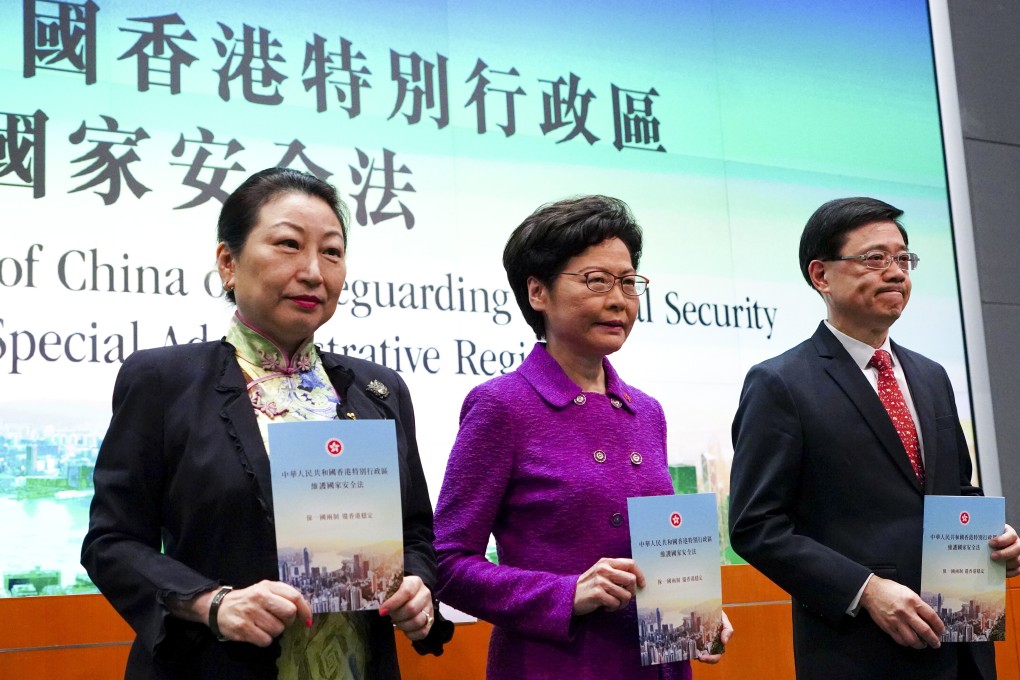Advertisement
Letters | Hong Kong people let down by lack of leadership and answers on security law
Reading Time:2 minutes
Why you can trust SCMP

The most baffling point of the national security law is that Hongkongers, the key stakeholders, were left completely uninformed of any details before being informed of its passage, which makes it absolutely unacceptable. If this is not authoritarian or totalitarian, tell me what is.
Chief Executive Carrie Lam Cheng Yuet-ngor herself said she was not clear about the law as she didn’t have the details, yet she urged the public to support it before its passage. How could one show approval of something without knowing what it is? If this is not blind obedience, correct me.
It is a pity the chief executive had no knowledge of something so crucial to the city and its people but understated its severity. She apparently did not evaluate the immediate impacts, imminent applications and far-reaching implications of the law at all, to say nothing of her subordinates who downplayed it and claimed only a minority would be affected. Is this short-sightedness or ignorance?
Advertisement
How can the chief executive gain the trust of Hongkongers, whose frustration with her governance has reached breaking point? When even the publication of personal opinions can prompt prosecution, where is our “security”? The focus now is “national” security, which overrides personal security.
While the freedoms of speech, publication and assembly are secured by the Basic Law, will Hongkongers still be able to exercise these when demonstrations continue to be banned?

05:50
What you should know about China's new national security law for Hong Kong
What you should know about China's new national security law for Hong Kong
Taking to the streets is not just to voice our disagreement but our opinion, as well as showing mutual support and unity. I can hardly remember what the five demands are, but I will never forget the tremendously strong spirit of togetherness and integrity in the assemblies starting from June 9 last year.
Advertisement
Advertisement
Select Voice
Select Speed
1.00x